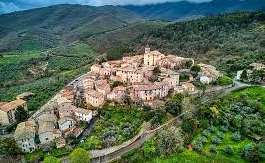In Italy, there lies the quaint town of Bastardo, a place where the majority of residents share the same surname. The village’s name traces back to an inn owned by a man of uncertain parentage, and over time, many locals adopted ‘Bastardo’ as their surname.
A comedy of errors
Imagine the confusion when multiple ‘Signor Bastardo’ families reside on the same street. Postal deliveries often go awry, with letters and packages playing a game of musical chairs before reaching their rightful owners. Local businesses, too, face challenges; a simple phone call to ‘Bastardo’s Bakery’ might lead you to the butcher instead.
Nicknames to the rescue
To navigate this labyrinth of likeness, villagers have embraced the use of nicknames. These monikers, often derived from professions, physical traits, or amusing anecdotes, serve as informal identifiers. For instance, ‘Gino il Fornaio’ (Gino the Baker) distinguishes him from ‘Gino il Macellaio’ (Gino the Butcher). This practice not only eases daily interactions but also adds a layer of endearing charm to the community.
A unique identity
While outsiders might view this nominal uniformity as a recipe for chaos, the residents of Bastardo wear it as a badge of honour. It fosters a tight-knit community spirit, where everyone knows everyone else—quite literally. In a world increasingly defined by individuality, Bastardo stands out as a testament to shared identity, proving that sometimes, it’s good to have ‘too many cooks in the kitchen.’
Beyond Italy
This phenomenon isn’t unique to Bastardo. In Chioggia, near Venice, a plethora of residents share the surname ‘Boscolo.’ To avoid confusion, nicknames have become so integral that they’ve been formalised as part of legal surnames.
Also Read: Delhi court awards life sentence to ex-Congress MP Sajjan Kumar in 1984 riots case
These communities exemplify how embracing a shared name can cultivate unity and a sense of belonging, turning potential confusion into a source of communal pride.
PNN






































